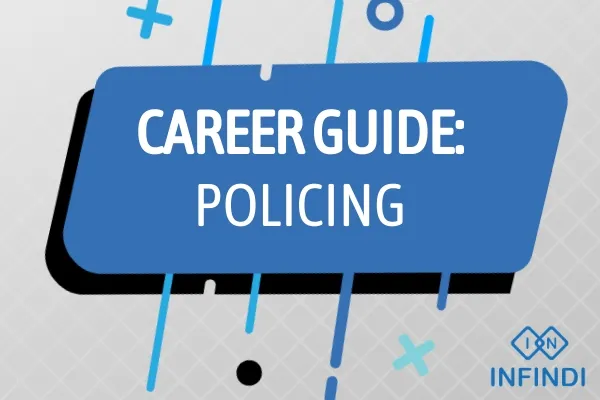For those with a strong sense of justice, a commitment to public safety, and a desire to make a positive impact in their communities, careers in policing offer a dynamic and essential path. Whether you’re an aspiring police officer or someone exploring advancement opportunities, understanding the intricacies of jobs in policing is crucial. This article aims to provide a comprehensive guide to policing careers, addressing duties, salary expectations, job descriptions, skills, qualifications, education and training requirements, experience prerequisites, frequently asked questions, and daily tasks.
1. Duties and Responsibilities
Police professionals play a vital role in enforcing laws, maintaining order, and safeguarding communities. Common duties and responsibilities include:
- Patrol Operations: Conducting routine patrols to deter and detect criminal activity.
- Crime Investigation: Investigating crimes, collecting evidence, and interviewing witnesses.
- Community Engagement: Building positive relationships with community members.
- Emergency Response: Responding to emergencies and providing assistance.
- Traffic Control: Enforcing traffic laws and ensuring road safety.
2. Salary Expectations
The salary for jobs in policing varies based on factors such as experience, rank, and location. Entry-level positions may start at around $50,000 annually, while experienced officers in higher ranks or specialized units can earn well over $100,000. Additional benefits, including healthcare, retirement plans, and overtime pay, contribute to the overall compensation package.
3. Possible Job Descriptions
Policing roles encompass various positions, each contributing to different aspects of law enforcement:
- Police Officer: Patrolling neighborhoods and responding to incidents.
- Detective: Investigating and solving crimes, often specializing in specific types of cases.
- Sergeant: Leading and supervising a team of officers.
- SWAT Team Member: Handling high-risk situations and emergencies.
- K-9 Unit Officer: Using specially trained dogs for tasks like tracking and drug detection.
4. Skills and Qualifications
Successful police professionals possess a combination of physical fitness, critical thinking, and interpersonal skills. Key skills include:
- Communication: Effectively communicating with the public and fellow officers.
- Problem-Solving: Analyzing situations and making quick decisions.
- Physical Fitness: Maintaining physical strength and agility.
- Empathy: Dealing with diverse communities and showing empathy.
- Adaptability: Navigating various situations and challenges.
5. Education and Training Requirements
Educational requirements for policing jobs vary, with most positions requiring at least a high school diploma or equivalent. Some agencies may prefer candidates with college degrees in criminal justice or related fields. Training includes completion of a police academy program and ongoing professional development.
6. Experience Requirements
Entry into policing jobs often involves gaining practical experience through police academy training and probationary periods. Advancement to higher ranks or specialized units may require several years of successful service and additional training.
7. Frequently Asked Questions
Q: Can police officers specialize in specific areas?
A: Yes, police officers can specialize in areas such as homicide investigation, narcotics enforcement, community policing, or cybercrime, based on their interests and skills.
Q: How does technology impact policing jobs?
A: Technology has transformed policing with tools like body cameras, predictive analytics, and communication systems, enhancing efficiency and accountability.
Q: What role does community policing play in law enforcement careers?
A: Community policing emphasizes building positive relationships with the community, fostering trust, and addressing public safety concerns collaboratively.
8. Daily Tasks and To-Do Lists
The daily tasks of a police professional can vary based on their role, shift, and specific assignments, but a typical to-do list may include:
- Conducting patrols to deter and detect criminal activity.
- Responding to emergency calls and providing assistance.
- Investigating crimes and collecting evidence.
- Engaging with community members and addressing concerns.
- Participating in ongoing training and professional development.
In conclusion, a career in policing offers a dynamic and essential journey for individuals dedicated to upholding the law and ensuring public safety. Whether you’re considering a role as a police officer or aiming for advancement, understanding the duties, qualifications, and daily tasks associated with policing jobs will set you on the path to a fulfilling and impactful career. Explore opportunities, serve your community with honor, and embark on a journey of making a positive difference in the realm of law enforcement.

